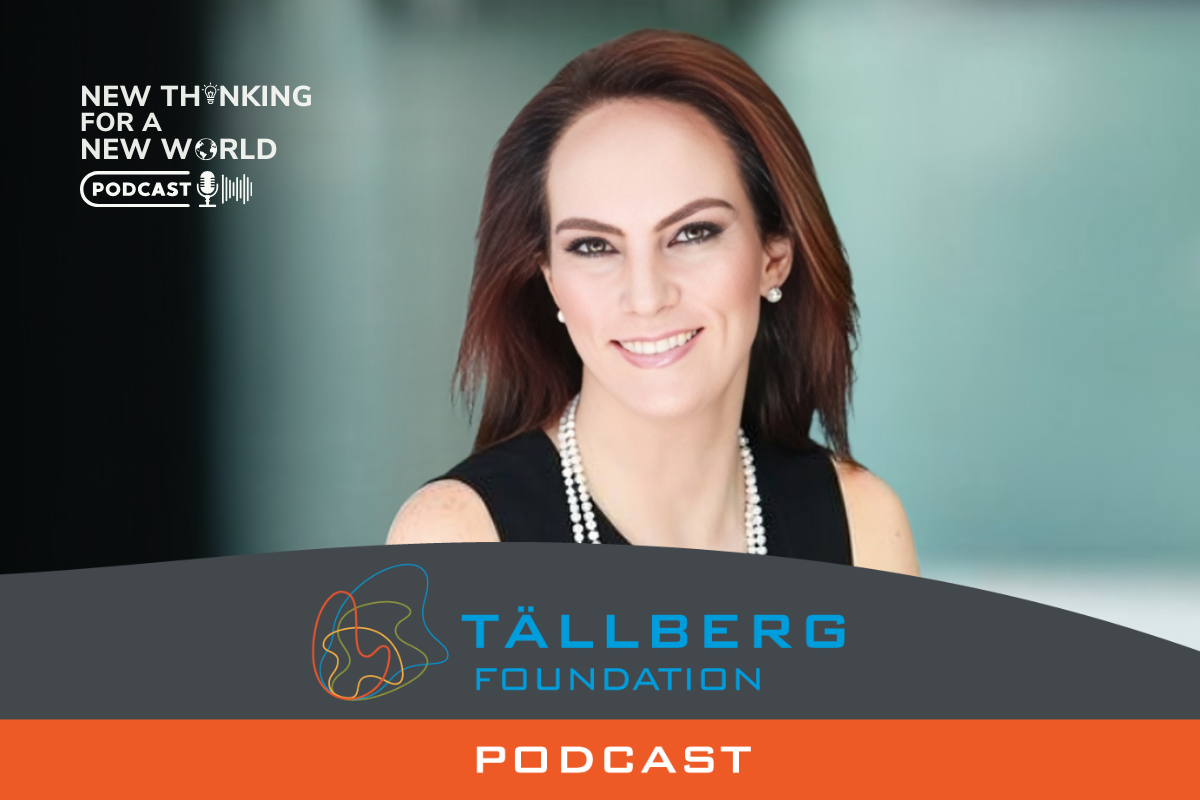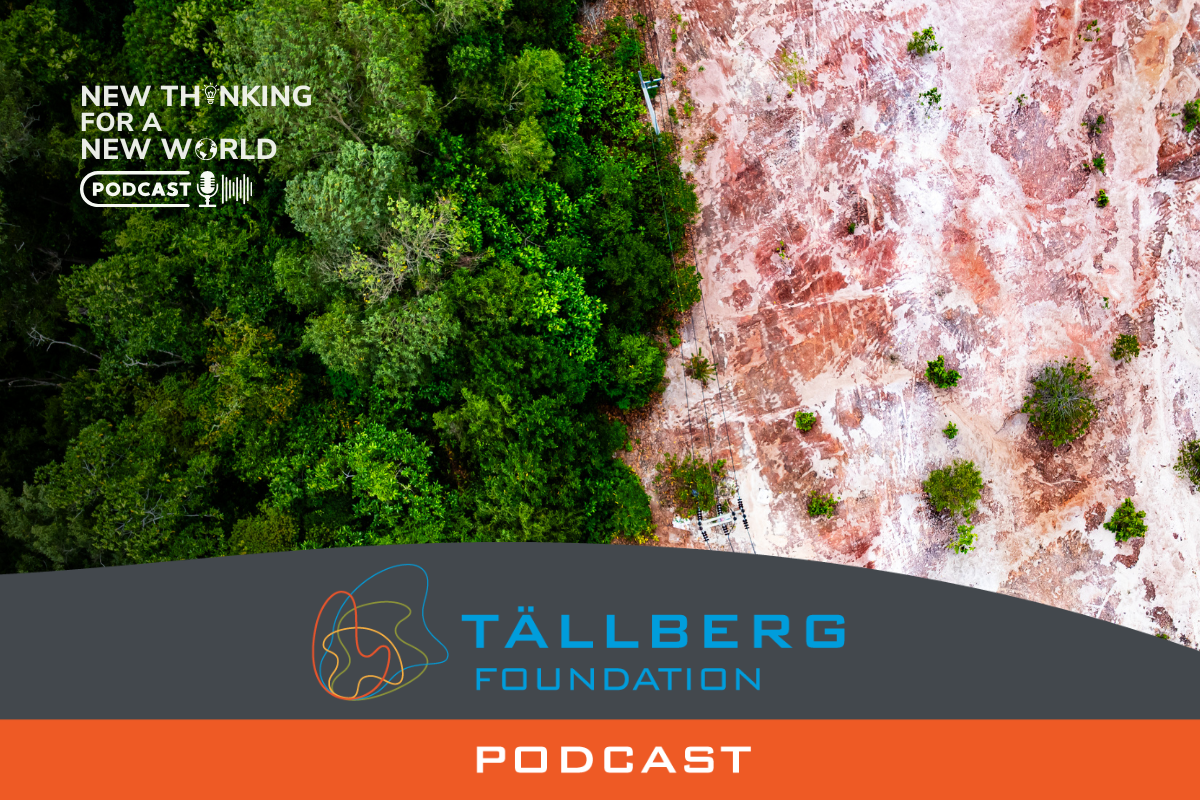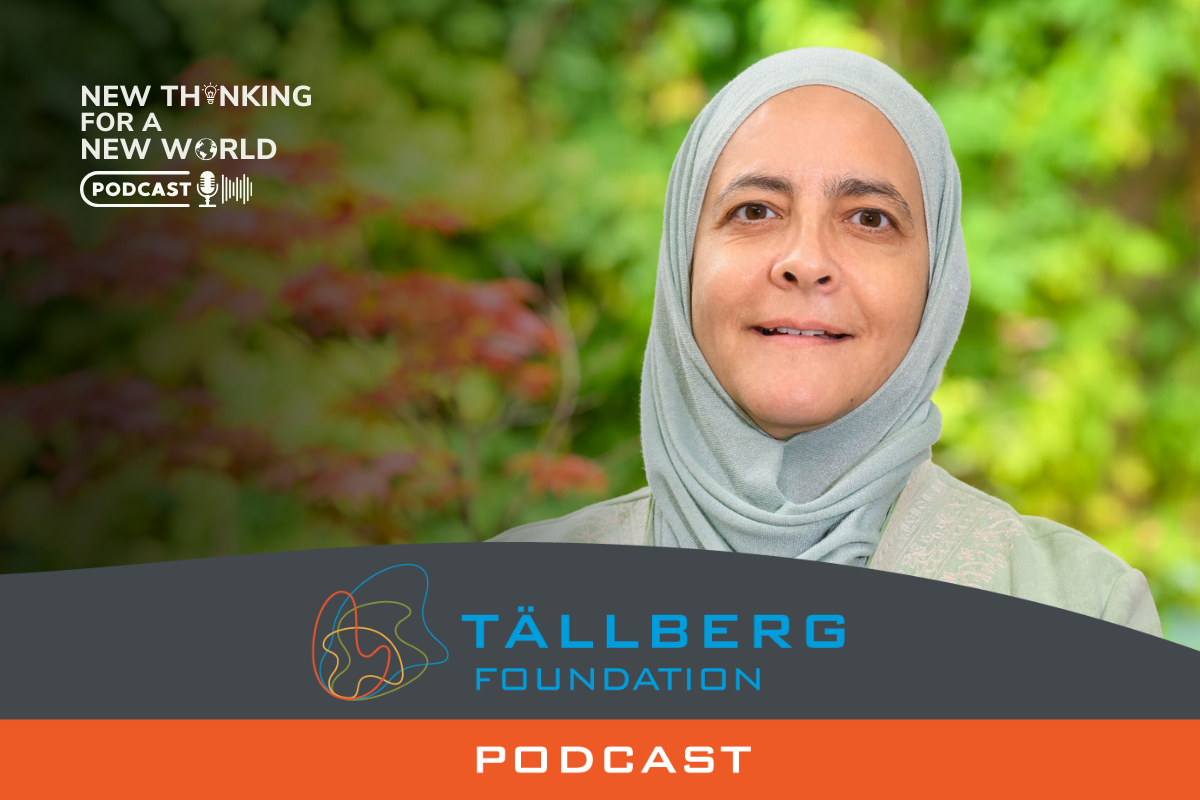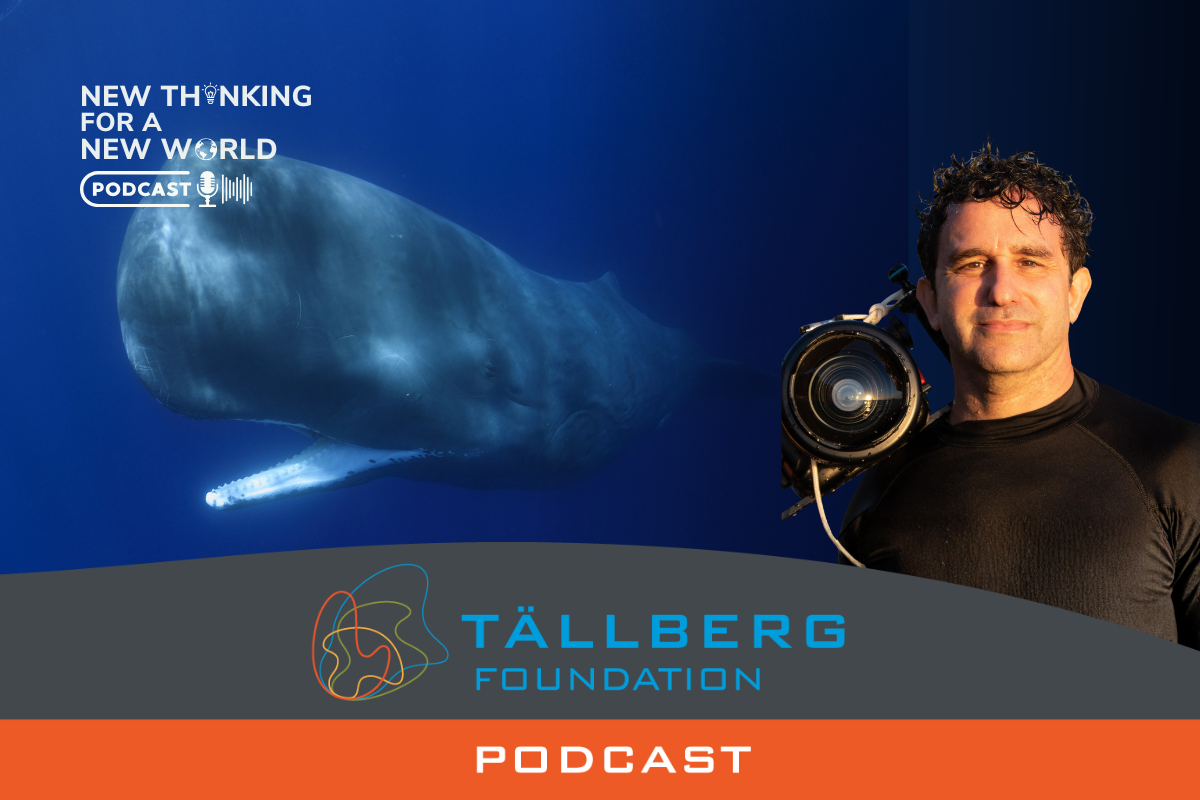Listen as Constanze Stelzenmüller—an expert on Germany, geopolitics and trans-Atlantic relations – shares her views on what is at stake. Hostile troops massing on the border of a Central European democracy. Russia’s threats against Ukraine and its demands for new security and arrangements in Europe sound all too familiar. Of course, the huge difference today is that Germany is not only firmly anchored in the West but is a cornerstone of the European Union. What will Germany do?
 Constanze Stelzenmüller is the inaugural holder of the Fritz Stern Chair on Germany and trans-Atlantic Relations in the Center on the United States and Europe at the Brookings Institution. From March 2020 to December 2020, she was a senior fellow in the Center on the United States and Europe. She held the Kissinger Chair on Foreign Policy and International Relations at the Library of Congress from October 2019 to March 2020. She served as the inaugural Robert Bosch Senior Fellow at Brookings from 2014 to 2019. Prior to working at Brookings, she was a senior transatlantic fellow with the German Marshall Fund of the United States (GMF), where she directed the influential Transatlantic Trends survey program. Dr. Stelzenmüller is the former director of GMF’s Berlin office. From 1994 to 2005, she was an editor for the political section of the German weekly DIE ZEIT, where she had also served as defense and international security editor and covered human rights issues and humanitarian crises. From 1988 to 1989, she was a visiting researcher at Harvard Law School. She has also been a GMF campus fellow at Grinnell College in Iowa, a Woodrow Wilson Center public policy scholar in Washington, DC, and a member of the Remarque Forum—a conference series of the Remarque Institute at New York University. Dr. Stelzenmüller holds a doctorate in law from the University of Bonn (1992), a master’s degree in public administration from the Kennedy School of Government at Harvard University (1988), and a law degree from the University of Bonn (1985).
Constanze Stelzenmüller is the inaugural holder of the Fritz Stern Chair on Germany and trans-Atlantic Relations in the Center on the United States and Europe at the Brookings Institution. From March 2020 to December 2020, she was a senior fellow in the Center on the United States and Europe. She held the Kissinger Chair on Foreign Policy and International Relations at the Library of Congress from October 2019 to March 2020. She served as the inaugural Robert Bosch Senior Fellow at Brookings from 2014 to 2019. Prior to working at Brookings, she was a senior transatlantic fellow with the German Marshall Fund of the United States (GMF), where she directed the influential Transatlantic Trends survey program. Dr. Stelzenmüller is the former director of GMF’s Berlin office. From 1994 to 2005, she was an editor for the political section of the German weekly DIE ZEIT, where she had also served as defense and international security editor and covered human rights issues and humanitarian crises. From 1988 to 1989, she was a visiting researcher at Harvard Law School. She has also been a GMF campus fellow at Grinnell College in Iowa, a Woodrow Wilson Center public policy scholar in Washington, DC, and a member of the Remarque Forum—a conference series of the Remarque Institute at New York University. Dr. Stelzenmüller holds a doctorate in law from the University of Bonn (1992), a master’s degree in public administration from the Kennedy School of Government at Harvard University (1988), and a law degree from the University of Bonn (1985).
Hostile troops massing on the border of a Central European democracy, fears of staged provocations, risk of a wider conflict that could spiral out of control, urgent diplomatic negotiations that fail to soften a would-be aggressor’s demands. No, it’s not 1938, it’s 2022, but Russia’s threats against Ukraine and its demands for new security and arrangements in Europe sound all too familiar.
Of course, the huge difference today is that Germany is not only firmly anchored in the West but is a cornerstone of the European Union. Nonetheless, today’s Germany is a center stage in the Ukraine crisis.
What will Germany do? Is the new coalition government of one mind when it comes to balancing the country’s energy dependence on Russia with its obligations to NATO? Are President Putin’s demands for a revamped European security order reasonable, at least from Moscow’s perspective?
The Ukraine crisis is far from over; however it ends, the consequences will be profound. Constanze Stelzenmüller—an expert on Germany, geopolitics and trans-Atlantic relations who is based at the Brookings Institution in Washington—is deeply knowledgeable about all aspects of the crisis. Listen as she shares her views on what is at stake.
What do you think? Comment below.
Listen to the episodes here or find us on a podcast platform of your choice (Apple podcast, Spotify, Acast, Stitcher, Google podcast, Youtube, etc).




A riveting albeit unsettling conversation that needs to be heard. In a sense the”war” already began with a cognitive assault of confused messaging from the Kremlin designed to fatigue and destabilise, to paraphrase Constanze. And as Alan states, any semblance of silk in this precipitous sow’s ear is that, similar to the Pandemic & Climate Crisis which signal the need to galvanise the global community, so now with Russia’s excessive demands. But will we – or will these crises remain missed opportunities as the global reflex reverts to authoritarian response rather than cohesion. Irrespective of the immediate outcome with Russia and Ukraine, this should signal a final warning to the world the need to summon multilateral muscle while still respecting national sovereignty if we’re ever going to withstand future challenges on behalf of a liveable planet. Sound like a riddle? Perhaps the solution is Simpol (Simultaneous Policy). Please interview founder John Bunzl about his savvy, timely, implementable apolitical governance tool that sheds insight about the faulty system impeding Leadership … and the means by which they and the voting public can extricate themselves. simpol.org
Putin has to consider the big risk, losing from a miltary, politcal, economic, and social-public view. In Risk Analysis each risk variable represents a X illustrated by X time X times X times X = Risk Issue Value . If you have three or more Xs the recommended action is to walk away.
A possible long term value for the West is the Euorpean nations come together and all or most nations of Euorpe deploy military assets to support the defense of Ukraine. Russia sees this growing coalition of nations supportiing Ukraine. Russia has always respected the barrel of gun as demonstrated by Presidents Johnson during the Six Day War, Nixon during the Yom Kippur War, and Reagan during the 1980s military build-up. This organized coalition of forse causes Putin to back away. This European response becomes a transformation movment for Euorpe.
Western Euorpean nations reexamine their current economic policies currently oriented slow economic advances when compared to the United States, Eastern Europe, Asia, and the emerging African economy (Africa has become world’s second fastest-growing region, experiencing average annual GDP growth of 4.6% for the period from 2000 and 2016.) As a result European begins regaining their world influence and begins shifting toward a more innovation entreprepreneurship driven. Western European nations begin regaining their lost economic influence.